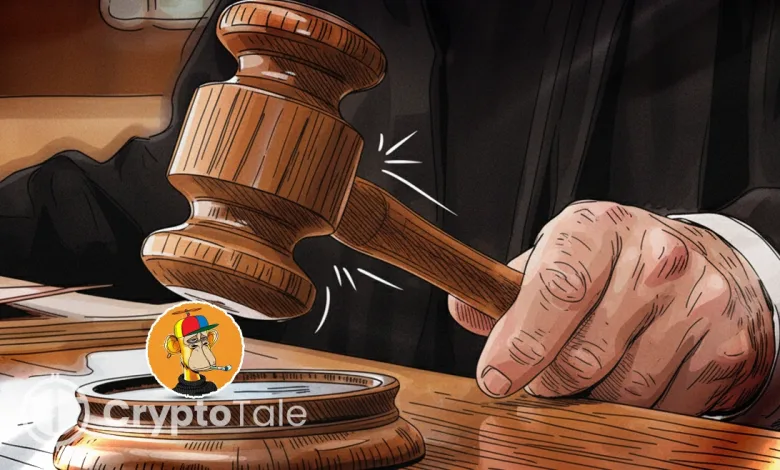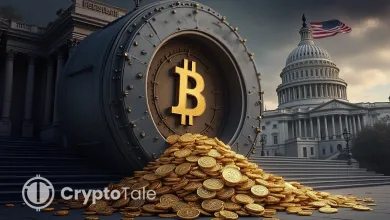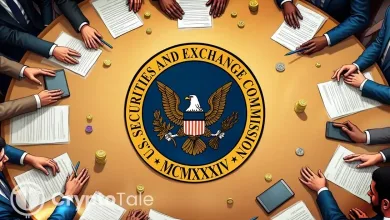U.S. Court Affirms NFTs Are Not Securities in Yuga Labs Case

- Court rules BAYC NFTs and ApeCoin are not securities under U.S. federal law.
- Decision supports NFT projects focused on utility, access, and decentralization.
- Ruling offers legal clarity for creators amid growing crypto asset regulation.
The recent U.S. federal court ruling that Yuga Labs’ Bored Ape Yacht Club (BAYC) NFTs and ApeCoin are not securities marks a pivotal moment. This decision is set to shape the future of crypto and NFT regulation.
Judge Fernando M. Olguin in California dismissed a long-running lawsuit that accused Yuga Labs of selling unregistered securities through its NFT collections and the ApeCoin cryptocurrency. This verdict helps clarify the legal status of membership-based or utility-focused NFTs, indicating they may not be subject to traditional securities laws.
Court Dismisses Securities Claims Against BAYC NFTs, ApeCoin
The judge applied the Howey Test to assess whether the assets in question qualified as securities. The plaintiffs claimed that the BAYC NFTs in themselves were investments depending on the success of Yuga Labs, so the purchasers anticipated that Yuga Labs would give them money back they invested into their activity.
However, the court found no evidence of a “common enterprise” or immediate expectation of profit linked with the actions of Yuga Labs. The ruling highlighted the fact that the provision of future-related benefits like exclusive club memberships or community access does not necessarily transform NFTs into securities.
Notably, this ruling is one of the reasons why BAYC NFTs and ApeCoin can be deemed more than other digital assets which have already been subjected to scrutiny by securities legislation. The key difference here is that BAYC NFTs are mostly purchased and sold on decentralized third-party exchanges, such as OpenSea and Coinbase instead of the own-controlled platforms of Yuga Labs.
This decentralized sales model significantly reduces the financial interdependence between the NFT issuer and holders, a crucial element in defining securities. The dismissal of the investor lawsuit against Yuga Labs targeting BAYC NFTs and ApeCoin by the court not only appears to solidify the legal divide between NFTs and securities but also opens doors brightly to digital asset makers to keep producing utility-driven or membership-based projects.
Ruling Brings Regulatory Clarity to NFT Market Dynamics
The judge highlighted that the NFT prices and trading volumes, on their own, are insufficient to establish an expectation of profit necessary to classify NFTs as securities. It is possible that these considerations indicate that they are somehow related to possible financial benefits, but they do not meet the legal requirements to qualify BAYC NFTs as investment contracts under the Howey Test.
This particular decision adds to an overall mosaic of redefinition of regulations, promoting more clear lines and more predictable schemes on digital innovations. It offers a welcome clarity and legal certainty to the NFT space that has been plagued by regulatory uncertainty. To Yuga Labs, it is a major success that establishes their stance as marketing digital collectibles and exclusive membership benefits as opposed to investment products, namely BAYC NFTs.
To the greater crypto community, it represents a shift by a court to defining most NFTs as consumer goods and not as regulated securities, which may embolden further innovation in the digital collectibles and utility token industries. Regulators too are changing with this changing landscape.
Related: NFTs for Legal Notices: Brazil’s Bold Crypto Court Move
NFT Legal Landscape Evolves with New Court Rule
The ruling does not provide complete freedom for all NFTs, but it sets a clear precedent that will influence future similar cases in court. Other types of projects that focus on the community membership, utility or decentralized trading systems can have better legal ground outside securities systems. However, it is still crucial that creators and traders think more about the specifics of the structure and marketing of their NFTs or tokens as these subtleties may predetermine the regulatory approaches.
The active interaction between the crypto industry and regulators continues to evolve. The recent progress, such as the initiatives, announced by the SEC to liberalize rules of digital assets, is an indication of the increased understanding of the special features of crypto assets in contrast to traditional securities.
It reassures the market that NFTs rooted in community and consumption, rather than pure investment speculation, may avoid the burdensome overlay of securities regulation. This milestone will probably become one of the main points of reference when it comes to the future of NFTs and the crypto ecosystem’s decisions.




